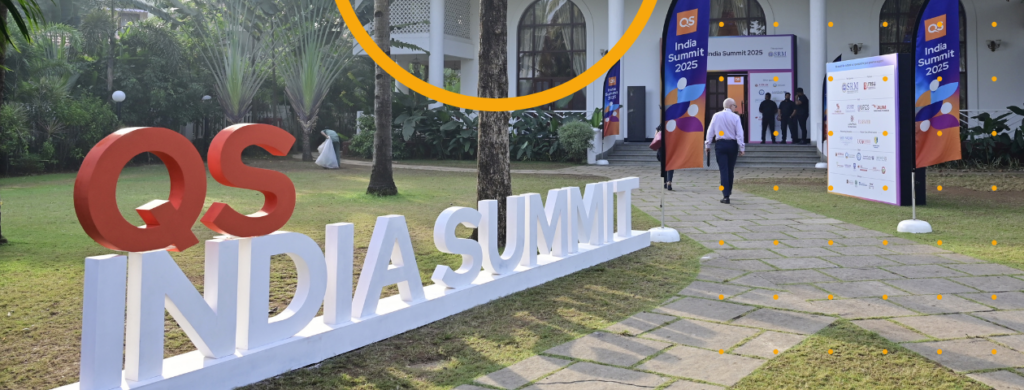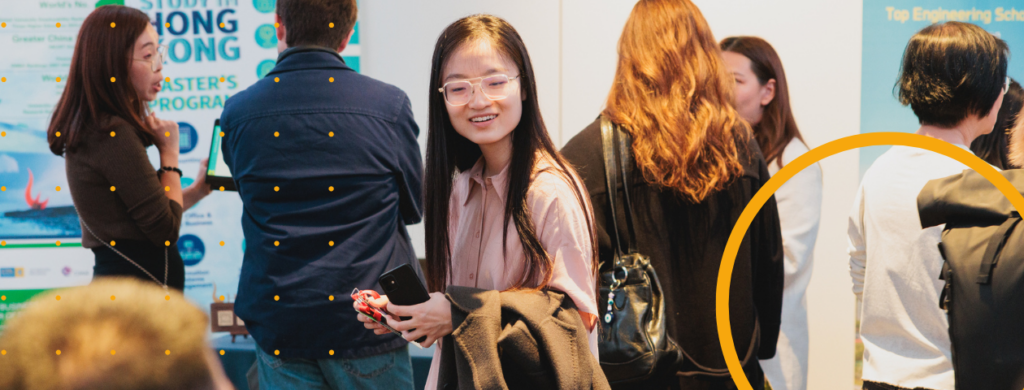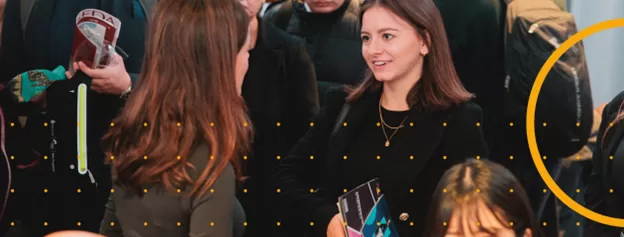
International students highly value the opinions of other, current international students. However, difficulty is clearly arising in connecting prospective and current students. How can universities better facilitate this crucial activity, and use it to drive international student recruitment?
What does the data tell us?
Over 50% of students from 56 countries said it was important that they had the ability to connect with existing international students. 65% of students from Cameroon said it was important – the highest rate. Many students from India, China, Nigeria and South Korea all report it as important too.
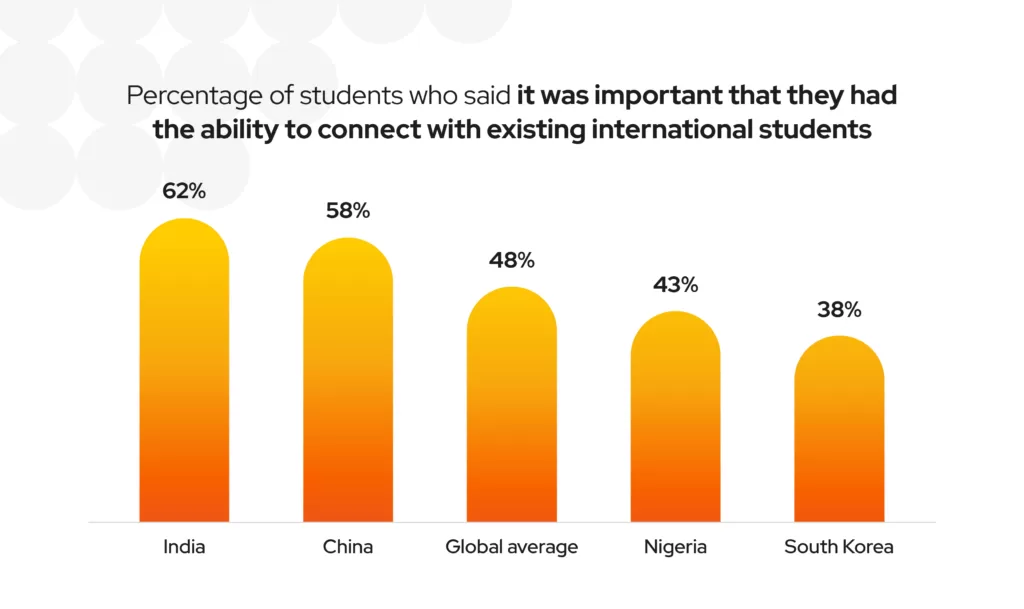
What’s clear from our reports based on the QS International Student Survey 2024, and the wider dataset, is that connecting with international students is a global desire, and the popularity of peer-to-peer connection is not waning. Since 2020, asking questions of existing international students has been the first or second most useful information source when making study decisions, above work placement and accommodation information.
The top five most selected options when asked “which of the following are most useful to use when making decisions about your studies?” in the QS International Student Survey:
- Information about teaching staffs’ experience and qualifications
- The ability to connect with existing international students to ask questions
- Information on work placements and links to industry
- Practical tips to help with your application
- Accommodation information
Peer-to-peer engagement proves challenging for many students
However, QS International Student Survey data also reveals that international students are not engaging with current students at a particularly high rate.
Globally, 48% of students say it’s important to connect with existing international students, but only 24% have or will discuss study options with student ambassadors – leaving a difference of 24%. For students from Benin, we see the largest difference: 42%. But this trend is global, with students from 50 countries reporting a difference over 25%, including students from China and India.
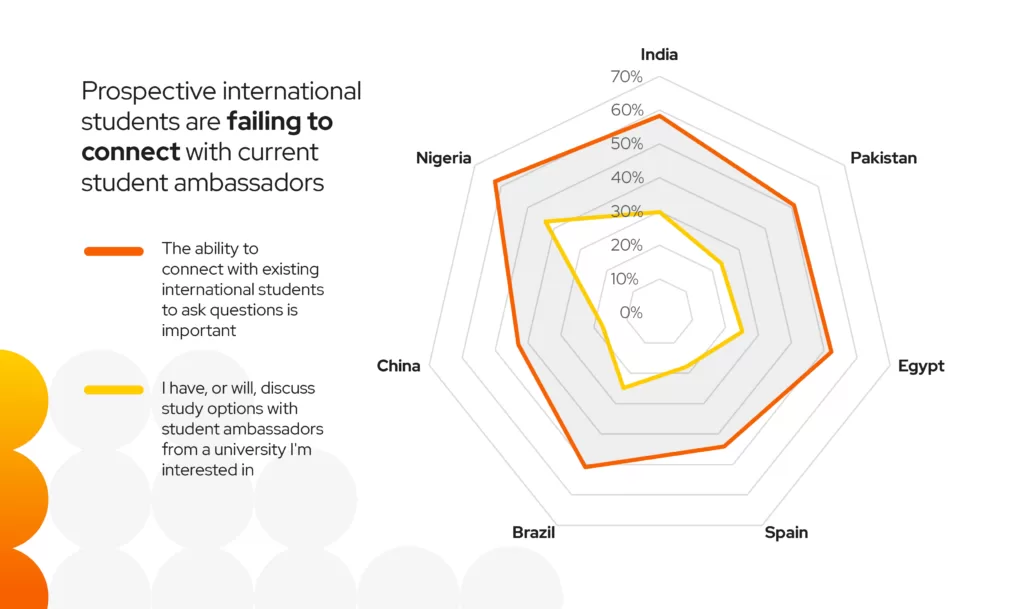
Above, we’ve shown the perspectives of students from major source markets around the world. India in particular is a missed opportunity – the desire to connect with current students is high, but the number who have is very low. Globally, prospective students are not reporting that they speak to student ambassadors, despite placing a high importance on their opinions.
What can universities do to close the gap?
With this in mind, we upgraded the student experience on TopUniversities.com. Our partnership with Unibuddy – peer-to-peer engagement experts – aims to provide our students with the opportunity to connect with current international students and hear their authentic perspectives.
Students using TopUniversities.com are often at an early stage of their journey, and are just beginning to decide where they might like to study. Engaging with an ambassador at this time could prove influential. While utilising your existing ambassadors, you could strengthen your marketing and awareness activity, and reach a new audience of high-intent students.
69% of students would be open to using a new communication tool if it helped them make a more informed decision
Unibuddy student confidence survey 2023
By using Unibuddy on TopUniversities.com, prospective students can hear authentic student experiences, and make fully informed study decisions.
Invite alumni to student recruitment events
Another way to close the gap is to invite alumni to student recruitment events. QS International Student Survey data highlights how many prospective students make use of student recruitment events. Ensuring alumni are actively involved with events provides another opportunity for prospective students to connect with ambassadors.
Tailored marketing
While not directly connecting students to each other, using relevant, authentic photography and testimonials in marketing collateral is an effective way to highlight the welcoming environment students find on campus, and create a positive association with your institution.
When choosing a university, 49% of students said that it was important that it’s welcoming for international students (QS International Student Survey 2024).
As you plan your recruitment activities, seek out engaged students from the countries you are trying to increase recruitment from. Allow them to tell their story and use their authentic testimonial to resonate with your future students.


